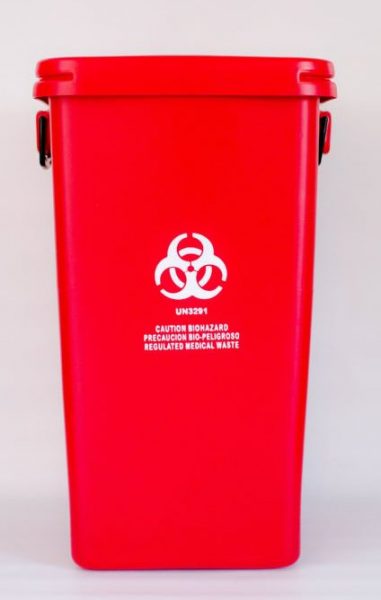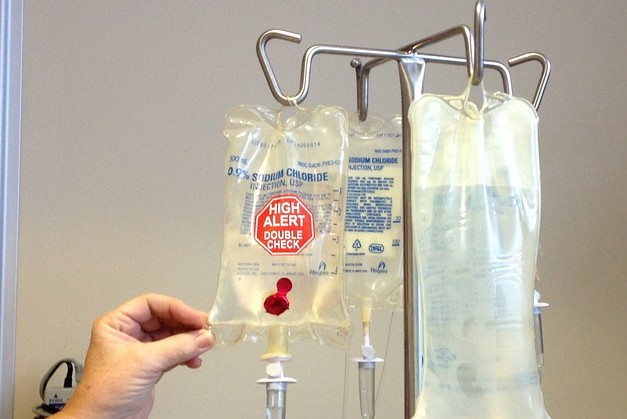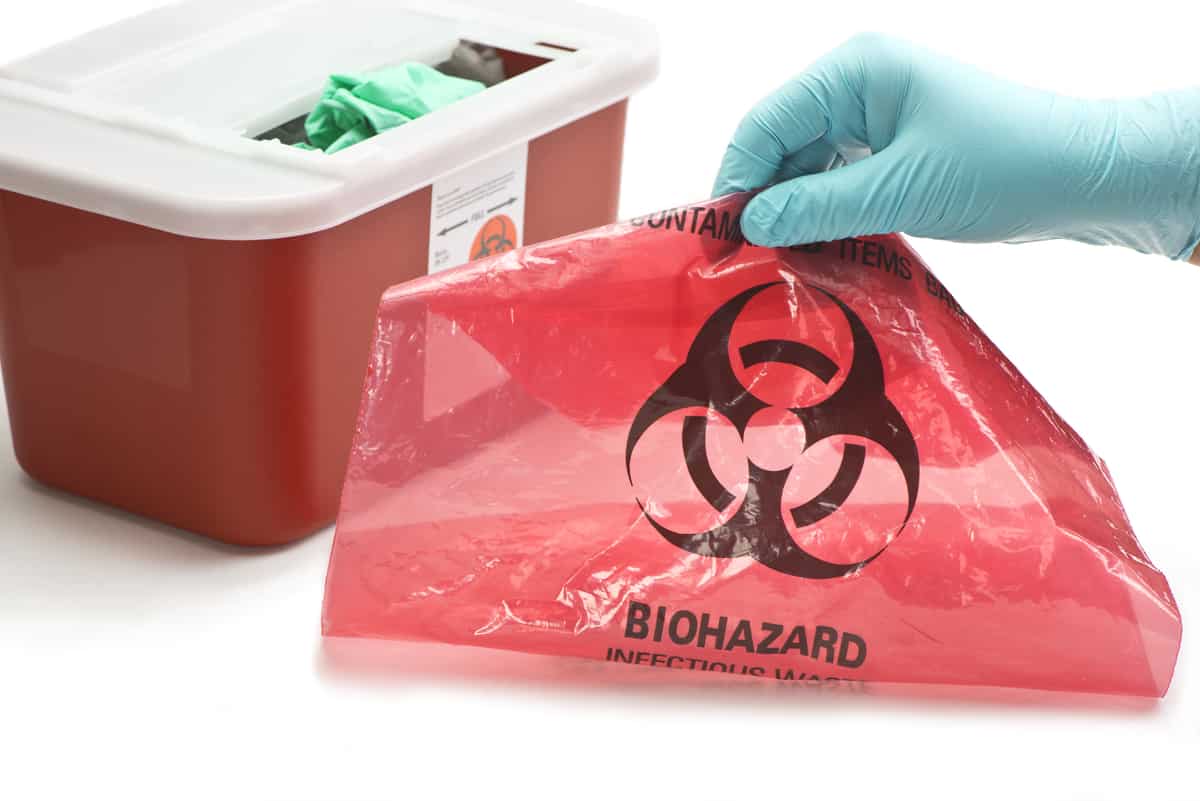Guardians of Cleanliness: Local Medical Waste Removal Service for Your Assurance
Guardians of Cleanliness: Local Medical Waste Removal Service for Your Assurance
Blog Article
Effective and Ecologically Friendly Medical Waste Disposal Solutions
In the ever-evolving area of medical care, the issue of clinical waste disposal continues to be a topic of vital importance. As healthcare facilities, clinics, and other health care centers strive to offer top quality patient care, they need to also deal with the difficulty of efficiently and sensibly disposing of their waste.
Waste Segregation Practices
Efficient waste partition techniques are vital to guarantee the correct and safe disposal of medical waste. Medical waste, that includes materials polluted with possibly transmittable compounds, have to be managed in a manner that lessens the threat of injury to both public wellness and the environment. Proper waste segregation plays an important function in accomplishing this objective.
Waste partition includes the separation of different types of waste based upon their qualities and prospective dangers. This procedure guarantees that each type of waste is treated and gotten rid of properly (medical waste disposal services with WasteX). It begins at the factor of generation, where healthcare centers ought to have designated containers and containers for different waste groups, such as sharps, contagious waste, pharmaceutical waste, and non-hazardous waste
By setting apart medical waste at the resource, doctor can prevent cross-contamination and lower the risk of direct exposure to contagious representatives. This practice additionally helps with the recycling and recuperation of certain products. Segregating and reusing tidy plastics and glass decreases the need for raw products and reduces the ecological impact of medical waste disposal.

Autoclaving and Sterilization Strategies
In order to ensure the secure and appropriate disposal of medical waste adhering to efficient waste partition practices, medical care facilities need to use autoclaving and sterilization techniques. Autoclaving is a commonly made use of technique that utilizes high-pressure heavy steam to decontaminate medical waste.
One more generally utilized sanitation technique is chemical sanitation. This involves treating the waste with chemicals such as ethylene oxide or hydrogen peroxide, which eliminate microorganisms by interrupting their mobile structure. Chemical sterilization is typically utilized for heat-sensitive products or products that can not withstand the high temperature levels of autoclaving. It is important to note that chemical sterilization calls for correct handling and disposal of the chemicals utilized, as they can be unsafe to human wellness and the atmosphere if not taken care of correctly.
On-Site Waste Treatment Equipments
Medical care facilities have implemented on-site waste treatment systems to address the disposal of medical waste in a efficient and secure fashion. These systems offer a hassle-free and cost-efficient service for taking care of clinical waste produced within the facility. On-site waste treatment systems utilize different technologies to dispose and treat of medical waste on-site, reducing the requirement for transportation to off-site facilities.
One frequently used on-site waste treatment system is the microwave technology. An additional system is the chemical sanitation innovation, which includes dealing with clinical waste with chemicals to eliminate virus and lower its dangerous nature. medical waste disposal services with WasteX.
They eliminate the danger of clinical waste being messed up during transportation, minimizing the possibility for contamination and direct exposure to damaging substances. see this site On-site treatment systems minimize the general ecological influence of clinical waste by reducing transport and the demand for land fill room.
Recycling and Repurposing Efforts
As health care centers strive for lasting waste management methods, they are progressively exploring recycling and repurposing efforts as a way of reducing the environmental effect of medical waste. Reusing and repurposing initiatives entail locating innovative methods to recycle or change medical waste right into new items or products. This not only assists to decrease the volume of waste that winds up in incinerators or landfills but also minimizes the usage of raw products and energy required for producing new items.
One example of recycling in the healthcare field is the reprocessing of single-use clinical tools. This not only reduces the amount of waste generated yet also conserves medical care centers considerable costs linked with buying brand-new tools.
An additional recycling effort includes the recycling of plastic containers, such as drug bottles or syringe housings. These containers can be accumulated, arranged, and sent out to recycling facilities where they are refined, thawed down, and changed into brand-new plastic items. This helps to conserve resources and decrease the need for virgin plastic manufacturing.
Along with recycling, repurposing initiatives entail finding alternative uses for clinical waste. Shredded paper waste from medical documents or product packaging materials can be repurposed as bed linen product for pets or as insulation product. Similarly, organic waste such as food scraps from healthcare facilities can be composted and utilized as fertilizer in yards or farming areas.

Renewable Energy Solutions
One reliable approach to minimizing the environmental impact of medical care operations involves applying eco-friendly power services. Medical care centers, such as healthcare facilities and clinics, consume substantial quantities of power for different functions, including lights, heating, air conditioning, and running medical equipment. By medical waste disposal services with WasteX transitioning to sustainable power resources, these centers can substantially lower their carbon footprint and add to a much more lasting future.

Carrying out eco-friendly energy remedies in medical care facilities not just decreases greenhouse gas emissions but also uses long-term price savings. While the preliminary financial investment in renewable resource infrastructure might be higher, the lasting functional costs of renewable power systems are dramatically reduced compared to typical fossil fuel-based energy resources. Furthermore, sustainable energy systems are reputable and can offer a uninterrupted and steady power supply, ensuring continuous medical care services also throughout power blackouts or emergency situations.
Verdict
In verdict, executing efficient and eco friendly clinical waste disposal services is essential for preserving a sustainable health care system. By taking on waste segregation techniques, autoclaving and sterilization methods, on-site waste treatment systems, recycling and repurposing initiatives, and eco-friendly energy options, healthcare centers can significantly minimize their environmental impact.
It begins at the point of generation, where health care centers ought to have marked bins and containers for different waste groups, such as sharps, infectious waste, pharmaceutical waste, and non-hazardous waste.
In order to make sure the appropriate and secure disposal of medical waste complying with efficient waste partition practices, health care centers have to employ autoclaving and sterilization methods.Medical care centers have executed on-site waste treatment systems to attend to the disposal of clinical waste in a safe and efficient fashion. On-site waste therapy systems utilize various innovations to get rid of and deal with of clinical waste on-site, decreasing the demand for transportation to off-site facilities.
As medical care facilities aim for sustainable waste administration methods, they are progressively discovering recycling and repurposing campaigns medical waste disposal services with WasteX as a method of lowering the ecological influence of clinical waste. - medical waste removal near me
Report this page